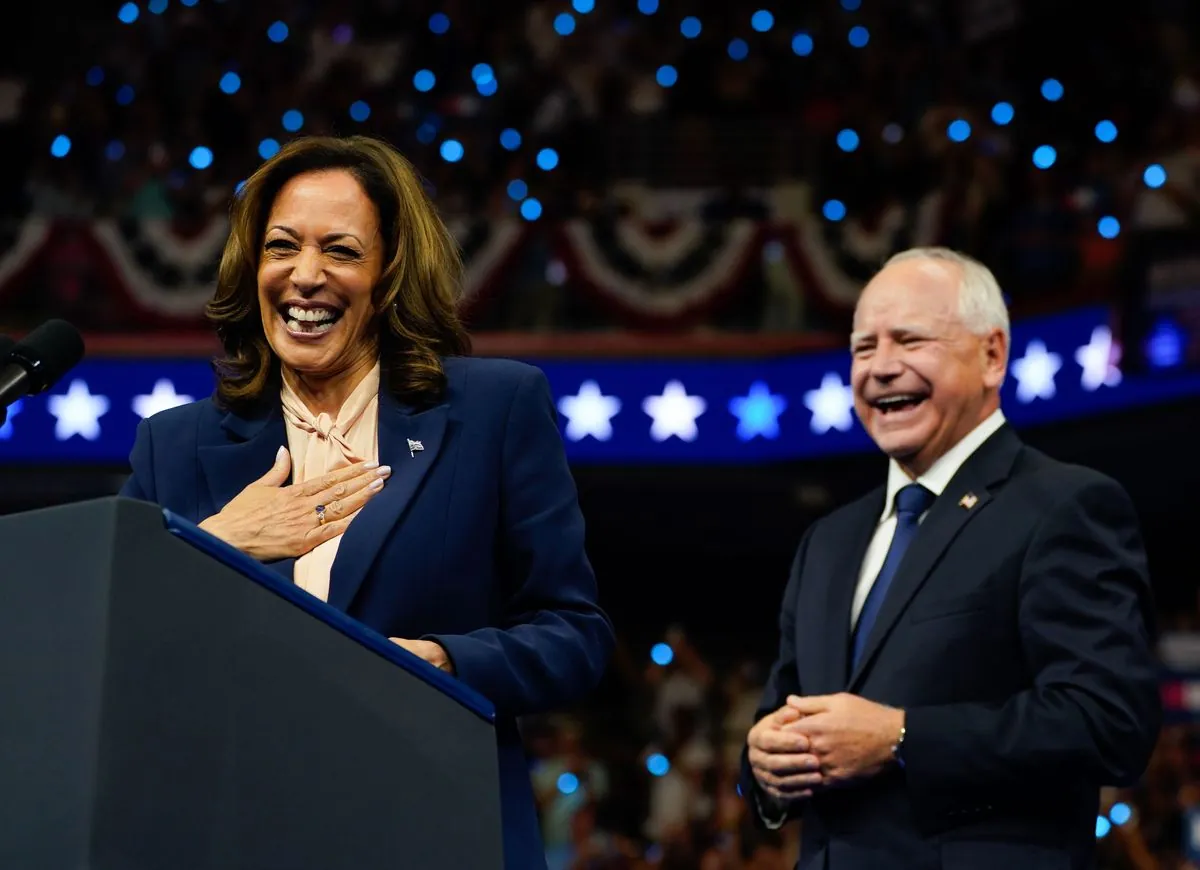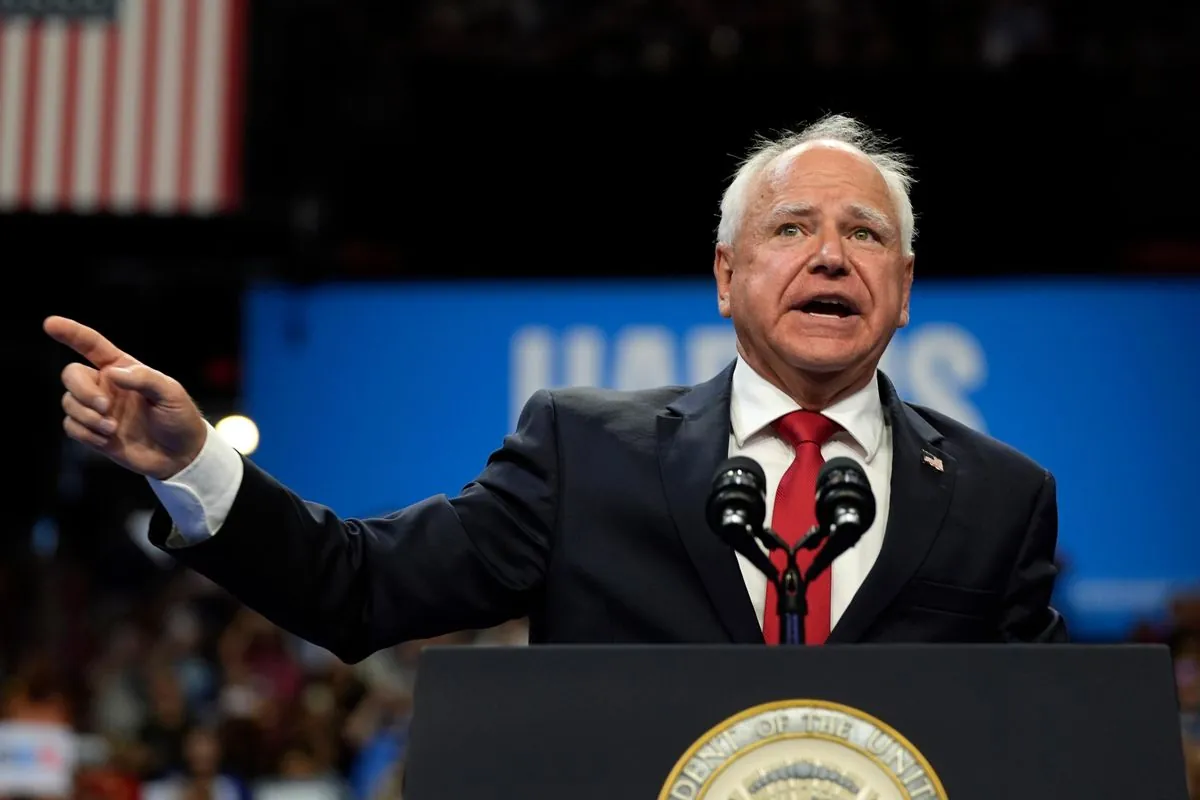Walz's Journey: From Minnesota Governor to VP Nominee Amid Racial Reckoning
Governor Tim Walz's path to becoming the Democratic VP nominee was shaped by his interactions with Black women activists following George Floyd's murder, revealing both progress and ongoing challenges in addressing racial disparities.

In the aftermath of George Floyd's murder in May 2020, Minnesota Governor Tim Walz found himself at the epicenter of a national racial reckoning. His interactions with Black women activists, particularly Toshira Garraway, Valerie Castile, and others, profoundly influenced his understanding of systemic racism and shaped his approach to governance.
Walz, now the Democratic nominee for vice president, initially struggled to grasp the full extent of racial disparities in Minnesota. Despite the state's reputation for high quality of life, it harbors some of the nation's widest gaps between Black and White residents in wealth, life expectancy, and education. This disparity exists despite Black Minnesotans comprising only 7% of the state's population.
The governor's education on racial issues began before Floyd's death. In 2017, while preparing his gubernatorial bid, Walz met with Valerie Castile, whose son Philando had been killed by police in 2016. Castile's candid discussions about racism in law enforcement left a lasting impression on Walz.

Following Floyd's murder, Walz engaged more deeply with Black women activists. He listened to their stories of loss and injustice, including Garraway's account of her boyfriend Justin Teigen's death in 2009 and Amity Dimock's narrative about her son Kobe Dimock-Heisler's killing by police in 2019. These interactions moved Walz emotionally and motivated him to pursue police reform legislation.
However, the path to reform proved challenging. Despite initial momentum, many proposed bills faced resistance in the legislature. Some measures, such as limiting chokeholds and requiring body camera footage to be released to families, were passed. Yet, more comprehensive reforms, including ending qualified immunity for officers and extending the statute of limitations for wrongful death suits, failed to gain traction.
"You listen to our stories. You watch us break down. You watch us cry. How can you make a deal to say this is okay?"
Faced with legislative obstacles, Walz sought alternative routes to address racial disparities. His administration invested in workforce training programs and supported initiatives to keep Black families together in the child welfare system. A significant victory came in 2023 with the passage of a bill providing free school meals to all students, a cause championed by Valerie Castile in honor of her son.
Despite these efforts, some activists who once worked closely with Walz now express disappointment. They feel that as the national focus on police reform waned, so did the governor's engagement with their causes. Del Shea Perry, whose son died in a jail cell, found it increasingly difficult to secure meetings with Walz as time passed.
As Walz prepares to address the Democratic National Convention as the vice presidential nominee, his journey reflects the complexities of addressing systemic racism. While he has made strides in some areas, the ongoing struggles of families affected by police violence underscore the work that remains.
The story of Walz's evolution on racial issues serves as a microcosm of the broader national conversation on race and policing. It highlights both the progress made and the persistent challenges in achieving meaningful reform. As he steps onto the national stage, Walz carries with him the lessons learned from Minnesota's racial reckoning, along with the unresolved questions and unfulfilled promises that continue to shape his political legacy.


































